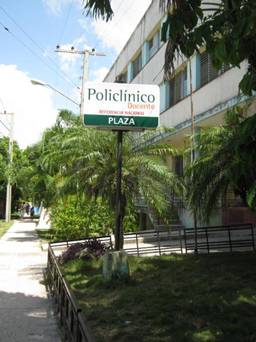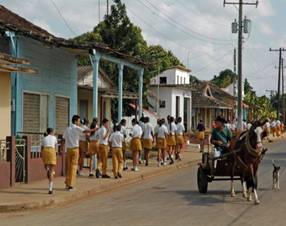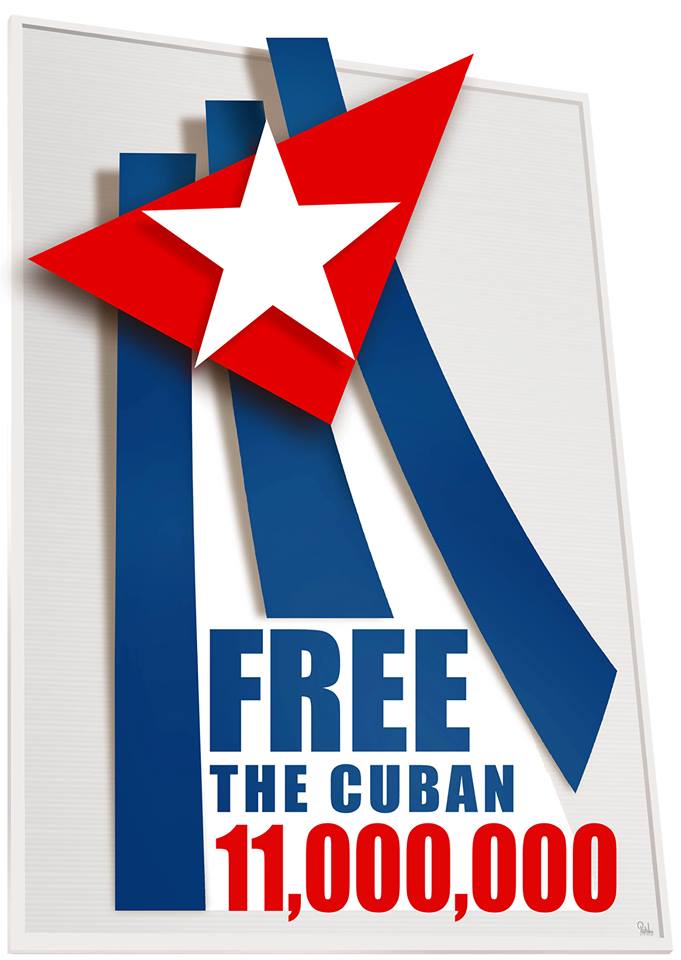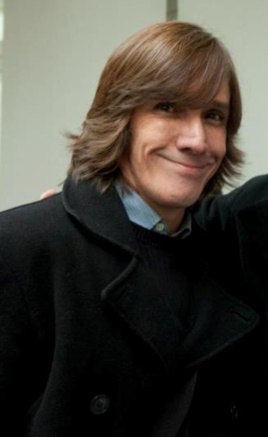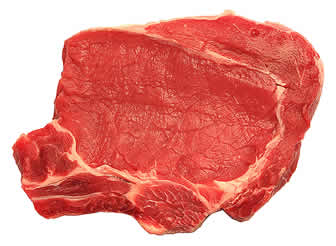Published in the second edition of Cuadernos de Pensamiento Plural, April 2013.
People cannot live without history. On the 160th anniversary of the birth José Martí, “the crowning figure of Cuban political thought,” his ideas, instead of being used to solve the serious social problems that afflict Cuban society, continue to be manipulated in order to validate a failed social model whose goal was to increase production while ignoring basic economic laws such as respect for fundamental rights and freedoms.
The process began on February 19, 1959 when, just days after assuming the post of Prime Minister, Fidel Castro — in one of his typical fits of volunteerism — stated that he would significantly increase agricultural production and double the consumption capacity of the rural population. He added that “Cuba would sweep away its horrific rate of chronic unemployment, achieving for the people a higher standard of living than any country in the world.” However, the dismantling of civil society, the suspension of civil liberties and the process of economic nationalization led to stagnation and international isolation, to discontent and hopelessness among the citizenry, to apathy, corruption and mass exodus.
Since the early years of revolutionary government this process has had two co-existing pathways to a socialist economy. One is the Economic Calculation in which businesses operating under a state plan enjoy a certain level of independence and self-financing. Employment decisions are based more on financial concerns than moral ones. The other is the System of Budgetary Financing, characterized by greater centralization, a high degree of subjectivity and a preference for the use of moral incentives over financial ones. For decades these two pathways have alternated with an exacerbating volunteerism. This phenomenon can be summarized in the six examples that follow.
1. Between 1962 and 1965 the Economic Calculation system was applied to agricultural businesses, although not in a comprehensive way. For example, self-financing, one of its cardinal features, was not applied, which led to businesses having to turn to the government for funding. During this period the leader of the revolution ignored planning guidelines and allocated large resources to develop his own initiatives such as the Agrupación Básica del Cauto, an agricultural project made up several western municipalities headquartered in the city of Bayamo.
2. In 1967 more rational standards were instituted. The System of Budgetary Financing was introduced, though with restrictions. It was called the New System of Economic Accounting. Its introduction led to the disappearance of the Ministry of Finance, the state budget, methods for billing and payment, and salary scales.
To develop the “new man,” a work schedule was introduced based on conscience and the extreme use of moral incentives. One of its failed attempts was the conversion of the Isle of Pines into Cuba’s first communist territory.
Later, the Revolutionary Offensive of 1968 did away with the last 56,000 small commercial businesses and private service providers which had managed to survive nationalization. This period reached its climax with the crazed attempt to produce ten millions tons of sugar, an effort which deformed the entire economy.
The mistakes made then were acknowledged in a report to the First Congress of the Cuban Communist Party in 1975 during which Fidel Castro said he had made the least correct decision by developing a new methodology. “We wanted to establish our own methods through the New System of Economic Accounting, which was preceded by the eradication of mercantile categories and the elimination of billing and payment practices between state enterprises.”
3. In 1972 Cuba gained entry to the Council for Mutual Economic Assistance, or Comecon, and in 1975 introduced the System of Economic Management and Planning (whose Spanish acronym was SDPE). It combined state planning, top-down management and rejection of the market. The SPDE was doomed to failure from the start since the Soviet experience had already demonstrated that efficiency in a planned economy was dependent on decentralization and the introduction of market forces.
The most daring initiative from this period was the opening of the Free Peasant Market (Mercado Libre Campesino or MLC) which began operations in 1980. It allowed small producers to sell their surpluses based on supply and demand, “after fulfilling their commitments to the state,” and to hire contract workers. It also allowed for self-employment in forty-eight activities.
In 1986, due to the influence of perestroika in the USSR, the reform experiment was interrupted. In a rush to reject the laws of economics, the Cuban leader decreed that in the area of production we would have to use economic tools to augment political and revolutionary work. This led to his replacing the Central Planning Board and its directors with the Support Group. The MLCs were closed and replaced with state agricultural enterprises. Economic decision-making was recentralized.
The Process of Rectification of Mistakes and Negative Tendencies began based on the argument that negative phenomena were appearing which threatened “the process of building socialism.” There was a return to subsidies for inefficient state enterprises. In the context of this counter-reform there emerged a slogan: “Now We Will Really Build Socialism.” Later, the collapse of the Soviet Union and the loss of subsidies which it had granted to Cuba, combined with the domestic counter-reforms, would lead to a steep drop in the nation’s GDP.
4. The above-mentioned disaster led to a deep crisis which the government termed the Special Period. In response a package of reforms was introduced between 1995 and 2003 that permitted the sale of food in homes, and snacks, soft drinks and ice cream on the street. It also made possible the existence of workshops and small studios, foreign investment, the reopening of the MLC’s (now termed Agricultural Markets), and the opening of a market for industrial products.
The dollar could circulate freely and legally, foreign commerce was decentralized, free trade zones were opened and UBPCs (so-called co-operatives set up by the state) were created. During this period the System of Corporate Perfection continued to be applied, though in a selective way, to those military-run businesses which had been experimenting with it for several years.
5. Although the reforms of the previous period generated good results, they were put on hold in 2004 in yet another return to centralization and a limitation on the role of the market. The Battle of Ideas, initiated by Fidel Castro, was adopted as a method for fighting administrative corruption, the siphoning of state resources and illicit personal enrichment — evils of the socialist economic model that were blamed on the market. As a result the issuance of new business licences was limited, taxes were increased and foreign investment was reconsidered. This shift was linked to closer relations with Venezuela, a country which supplied petroleum at cut-rate prices in exchange for services. The magnitude of this trade, which made up for the loss of Soviet subsidies, replaced sugar, nickel and manufacturing as the top export sectors.
6. The beginning of the current period began with the transfer of power from the First Secretary of the Cuban Communist Party, Fidel Castro — who also served as President of the Council of Ministers, President of the Council of State and Commander-in-Chief — to Army General Raul Castro. In the absence of civic forces with the ability to influence the course of events, the transfer took place within the existing power structure, which determined the character, sequence, depth, direction and speed of change. Raul Castro, faced with an extremely complex national and international scenario, began a period marked by speculation, aspiration and hope.
With the goal of introducing some rationality to the Cuban economic model while at the same time ignoring the role of the market in relation to property and individual liberty, Raul Castro began by getting rid of methods and plans which relied on the volunteerism that was part of the Battle of Ideas. He announced the introduction of structural and conceptual changes outlined in a basic reform plan.
These included: 1) building a strong and efficient agricultural sector capable of providing food for the population and reducing imports, 2) making people feel the need to work in order to survive, 3) strongly rejecting illegalities and other signs of corruption, 4) reducing workplace staffing, whose redundancies exceeded one million and 5) encouraging self-employment as a way to absorb the surplus workforce.
The most important aspect of this basic plan was a provision to lease out idle farm land. It was an insufficient and contradictory measure since it acknowledged the inability of the state to produce while identifying food production as a national security problem, but kept property in the hands of the state, reducing producers to nothing more than tenants. Although the changes were too little and too late, they nevertheless marked a shift after decades of stagnation.
Attempts at reform were hindered by a kind of power sharing agreement in which all important decisions were made only after the new president had consulted with his brother, who was opposed to change. The critical point in this arrangement came in mid-2011 when Fidel Castro, in repeated appearances before the National Assembly on and before August 7, expressed his concerns about an “imminent” nuclear war.
During his final appearance he referred to President Barack Obama, who would presumably order the commencement of this holocaust, stating that perhaps he would not would give the order if we could persuade him otherwise. In contrast, on August 1, 2011 at a session of the National Assembly Raul Castro announced the expansion of self-employment, including the right to hire employees, something unprecedented in Cuba. And on August 13, Fidel Castro’s birthday, the release of six more political prisoners was announced.
The key features of the basic program were “outlined in the Guidelines of Economic and Social Policy.” Approved by the Sixth Cuban Communist Party Congress, they were constrained by the system of socialist planning and state-owned enterprise, which remained the principal means for economic development. In addition to these constraints the inherent contradictions and inconsistencies of the reforms became clear during fifteen provincial party conferences held after the party congress.
During these conferences the party’s second secretary, José Ramón Machado Ventura, reiterated certain ideas, saying, “We have to know beforehand what every producer is going to plant and harvest,” adding, “We must demand this of those who do not make the land productive.”
Decrees were issued to make sure the economy remained under state and party control. Finally, between June 11 and June, 2012 eight short pieces by Fidel Castro appeared in the official press. Nebulous and out of touch with Cuban reality, they marked the end of the period of power sharing. Only then and not before could one speak of the government of Raúl Castro.
During a session in July 2012 of the National Assembly, the president of the Council of State returned to decrees issued in a report to the Sixth Congress. Several days later in Guantánamo he once again took up the subject of a willingness to improve relations with the United States and on July 30 he led a parade on Martyr’s Day in Santiago de Cuba, which marked the real beginning of his rule.
Since then his time as head of government has had, on balance, the following results:
1. Agricultural production fell 4.2% in 2010. In 2011 GDP grew less than expected. Food imports increased by 1.5 billion in 2010 and 1.7 million in 2011. Sales decreased 19.4% compared to 2010 and retail prices increased 19.8%. Meanwhile the average nominal monthly salary increased only 2.2%, leading to a worsening situation for workers. Yields from sugar harvests were comparable to those at the beginning of the 20th century. This included the 2011-2012 harvest, which was forecast to 1,450,000 tons of sugar, but which failed to meet either its target amount or target date.
2. Criminal activity, as evidenced by the number of completed and pending criminal procedures, grew to such a degree that corruption and economic inefficiency became national security problems.
3. The limitations imposed on self-employment prevented this sector from absorbing as many state workers as anticipated. Of some 400,000 self-employed workers, more than 330,000 lacked work experience or were retirees, which meant that less than 17% of state employees were absorbed into the private sector.
Among the multiple reasons for these failures was the attempt to overcome a structural crisis by applying partial measures. There was also a lack of political willingness to allow diverse forms of property ownership, the formation of a middle class or to alter the unsatisfactory state of civil rights.
The First Conference of the Cuban Communist Party, held in January 2012, once again did not address these basic issues. More recently President Hugo Chavez’ illness has threatened the huge subsidies that Cuba receives from Venezuela, which means the authorities will have to introduce more energetic, profound and comprehensive reforms. Regardless of what happens in Venezuela, nothing will be be the same without Chavez.
The most recent measures reflect this. Non-agricultural cooperatives have been created with greater autonomy than their predecessors. A new emigration policy has relaxed absurd prohibitions on freedom of movement. Tariffs on cell phones have been reduced, a move which will lead to increased communication.
The amount of live programming from Telesur has greatly increased, weakening the official media’s monolithic control and its attempts at disinformation. Coverage of professional sports such as basketball and baseball on Cuban television — something unheard of until now — has been introduced.
Information has been released on the first tests of the fiber optic cable intended to normalize electronic communications, breaking the government’s extended silence on this issue. The timing of these decisions suggests they are a response to issues that will arise upon the impending demise of President Hugo Chavez and the subsequent need to improve relations with the United States and the European Union.
These steps point in the direction of change. However, as long as the provisions of the Universal Declaration of Human Rights, the Convention on Civil and Political Rights and the Convention on Economic, Social and Cultural Rights are not adopted as legal foundations for citizens’ rights, one cannot properly speak of a true political willingness for change.
The relevance of Marti’s philosophy
Is there some relationship between the José Martí’s ideas regarding the party, freedom and democracy, Cuban political participation, and small and medium-slzed property on the one hand, and the current state of Cuban society on the other?
After analyzing the causes for the failure of the Ten Year’s War, Martí conceived the Revolutionary Party of Cuba (PRC) as a tool for organizing, controlling and creating a conscience for developing the nation and defining the republic. He believed that winning immediate independence would plant the seeds of permanent independence. On April 1, 1893 he said in New York, “The greatness of the Revolutionary Party is this: In order to found the Republic, it has begun with a republic. This is its strength: In the work of everyone, it gives rights to everyone. It is an idea that we must take to Cuba, not a person…”
And in the statutes of the PRC he defines it as follows: The party “does not propose to perpetuate in the Cuban Republic the authoritarian spirit and bureaucratic composition of a colony through new forms or alterations that are more superficial than essential. Rather, it proposes to establish, through the honest and cordial exercise of legitimate human abilities, a new people and true democracy, capable of overcoming, through the discipline of real work and a balance of social forces, the dangers of sudden democracy in a society designed for slavery.”
In regard to other things we currently lack such as freedom and democracy, he wrote, “Let us close the path to a republic that is not prepared to provide dignified means to human decency, for the good and prosperity of all Cubans…”
In 1891 he said, “Of the things for my homeland that I would prefer to have, it would be a good for everyone, a fundamental good that would be the basis and beginning of all others, and without which the others would be false and uncertain. This would be the good that I would prefer: I want the first law of our republic to be the cult of Cubans for the full dignity of Man.”
In New York on October 10, 1889 he stated, “Everything in my homeland is common property, and the free and inalienable object for action and philosophy of all who have been born in Cuba. The homeland is the happiness of everyone, and the pain of everyone, and the sky for everyone, and not the fiefdom or chaplaincy of anyone. And public things in which one group or party of Cubans puts its hands with the same undeniable right with which we put them, these are not theirs alone. And privileged property, through subtle virtue and unnatural character, is ours as well as theirs…”
And in a letter to José Dolores Poyo from December, 1891 he wrote, “It is my dream that every Cuban shall be an entirely free political man.”
In reference to Cubans’ participation in political matters, he stated on February 17, 1892, “I will show them those workshops where men practice politics, dealing with real life instead books, which is the study of the public interest, in work that cleanses it and moderates it and in the truth that places it on solid ground.”
On the third anniversary of the PRC he returned to this subject: “A people is not the will of one man, no matter how pure he may be, nor the puerile determination to effect in one human group the naive ideal of a celestial spirit, a blind graduate of the unsteady university of the clouds… A people is a composition of many wills, vile or pure, honest or stern, constrained by timidity or precipitated by ignorance.”
On a subject as vital for its social function as property, José Martí said, “Rich is a nation with many small property owners. A people with a few rich men is not rich, but rather one in which everyone has a bit of wealth. In political economics and good governance its distribution is beneficial.”
Conclusions
Martí’s philosophies retain their relevance not only because they were advanced in his lifetime or because they have stood the test of time, but also because, in terms of rights and freedoms, Cuba has regressed to the 19th century in which Martí lived.
Martí imagined the Republic as a path to destiny. In contrast he imagined the Party as a tactical necessity in a larger strategy, not as a way to represent one social class, or to have electoral goals, or to dominate other parties or prohibit their existence, or to annul voter participation, or to declare that the street and the university belong to the revolutionary, much less to repress those who have every right to think differently.
For Martí the republic, by its very nature, had to be inclusive. It had to be a Cuban-born state of equal rights for all, a place of free expression, and for the good and prosperity of all, a republic where every Cuban could be an entirely free man. For such elevated goals he dreamed, thought, fought and died so that the First Law of the Republic might be the full dignity of Man.
Therefore, since the socialist model has failed, Martí’s philosophy — one which is both historical and current — serves as a valid point of reference which we should use to overcome the stagnation in which we find ourselves. That would be the best and most poignant homage to him on anniversaries to come.
24 April 2013
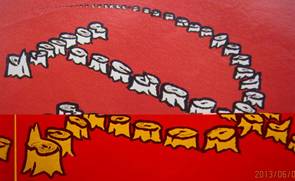

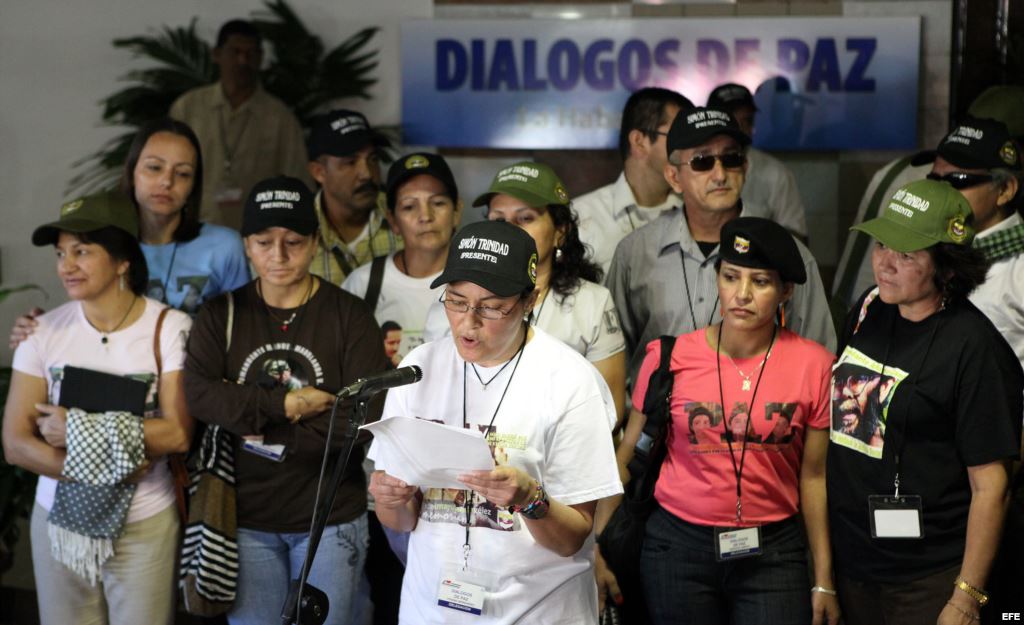
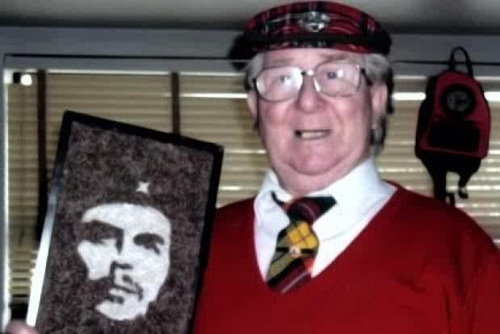
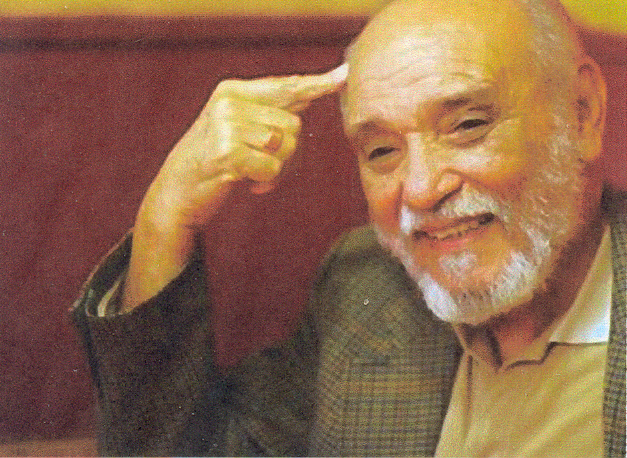
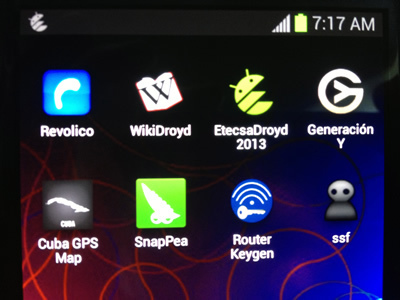
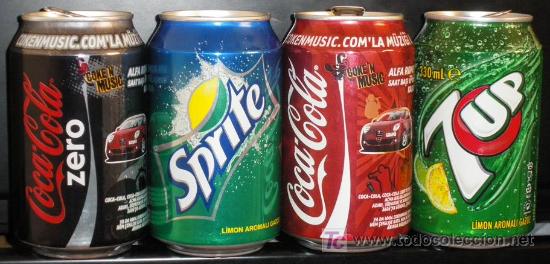
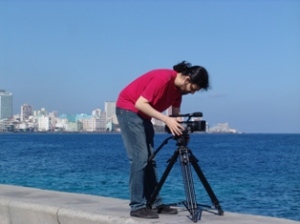 My cousin, Miguel Coyula, has a request through crowdfunding to support his new movie about the cloning of the New Man.
My cousin, Miguel Coyula, has a request through crowdfunding to support his new movie about the cloning of the New Man. 